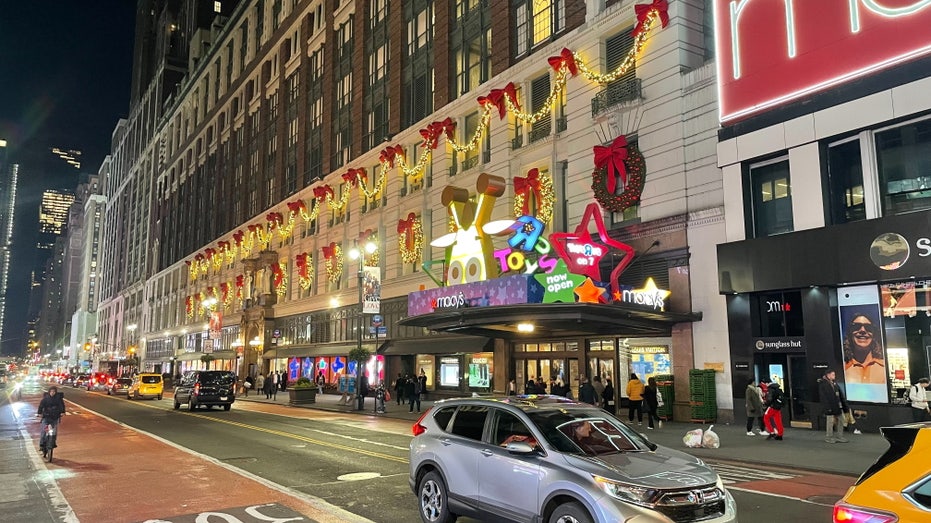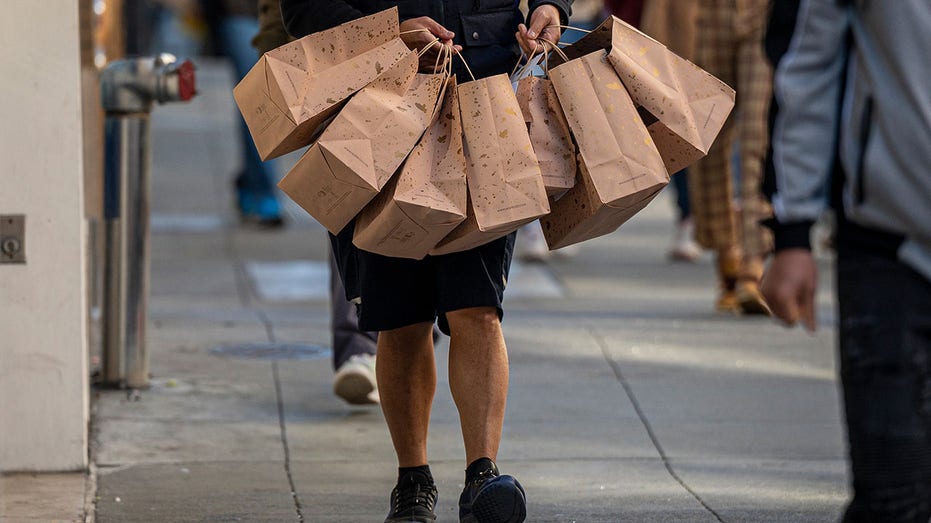Alex Mill Chairman Millard Drexler has the latest on the retail market on ‘The Claman Countdown.’
Shoppers are expected to spend a record amount of money this holiday season even as they confront a number of economic headwinds, including steep borrowing costs, persistent inflation and the resumption of student loan repayments.
The National Retail Federation (NRF) released new projections on Thursday that suggest sales in November and December will rise by 3% to 4% year over year. That would amount to about $957.3 billion to $966.6 billion in spending during that period, the highest level on record.
Shoppers spent about $930 billion during the 2022 holiday season, with sales up about 5.4% from the previous year. Although sales are still expected to increase this year, the NRF is forecasting a slower pace of growth than the average 5% rate over the past decade.
WORKERS NOW DEMANDING NEARLY $80K TO START NEW JOB
The estimate, however, is closer in line with the growth rate seen between 2010 and 2019, which excludes the stimulus-fueled pandemic years. Holiday sales surged 9.3% in 2020 and 13.5% in 2021.
A pedestrian carries Nespresso shopping bags in San Francisco on Dec. 21, 2022. (David Paul Morris/Bloomberg via / Getty Images)
“We know consumers are becoming more cautious in the face of inflation and rising interest rates and the impact of monetary policy decisions,” NRF CEO Matthew Shay told reporters on a call. “And yet those consumers continue to spend on household priorities.”
A solid job market and big wage increases have helped to buoy consumer spending in recent months, despite high inflation. However, many economists expect consumers to grow more cautious in the coming months as student loan payments resume and high interest rates continue to work their way through the economy. On top of that, more Americans are relying on their credit cards to cover necessities.
Credit card debt topped $1 trillion earlier this year while delinquencies surged to an 11-year high in August.
RISING CHILD CARE PRICES STARTING TO BITE US FAMILIES
“We all recognize there are some headwinds impacting consumers,” Shay said. “And they’re going to continue to play a role in the final months this year.”
Although inflation has cooled considerably in recent months, it remains up 3.7% compared with the same time one year ago, according to the most recent Labor Department data.

Macy’s, a major holiday shopping destination, is seen in New York City on Nov. 16, 2022. (Jessica DiNapoli / Reuters Photos)
High inflation has created severe financial pressures for most U.S. households, which are still paying more for everyday necessities like food, gasoline and rent. The burden is disproportionately borne by low-income Americans, whose already-stretched paychecks are heavily affected by price fluctuations.
Last month, Walmart — a bellwether for the retail industry and broader economy — warned that there is reason to be cautious about consumer spending in the latter half of the year. It cited risks to its potential profit margins, including the resumption of student loan payments, rising gas prices and high interest rates.
CLICK HERE TO READ MORE ON FOX BUSINESS
Walmart is not alone in its warning.
A number of brands and retailers could be hit by the spending reduction that accompanies the restart of student loan payments, including American Eagle Outfitters, Carter’s, Crocs, Foot Locker, Canada Goose, Gap, Nordstrom, Nike, Steve Madden, Under Armour and Victoria’s Secret, according to a recent UBS note.
“The cumulative effect of all of these things is going to show some moderation in consumer behavior relative to the last several years of holiday spending,” Shay said Thursday.
Credit: Source link




